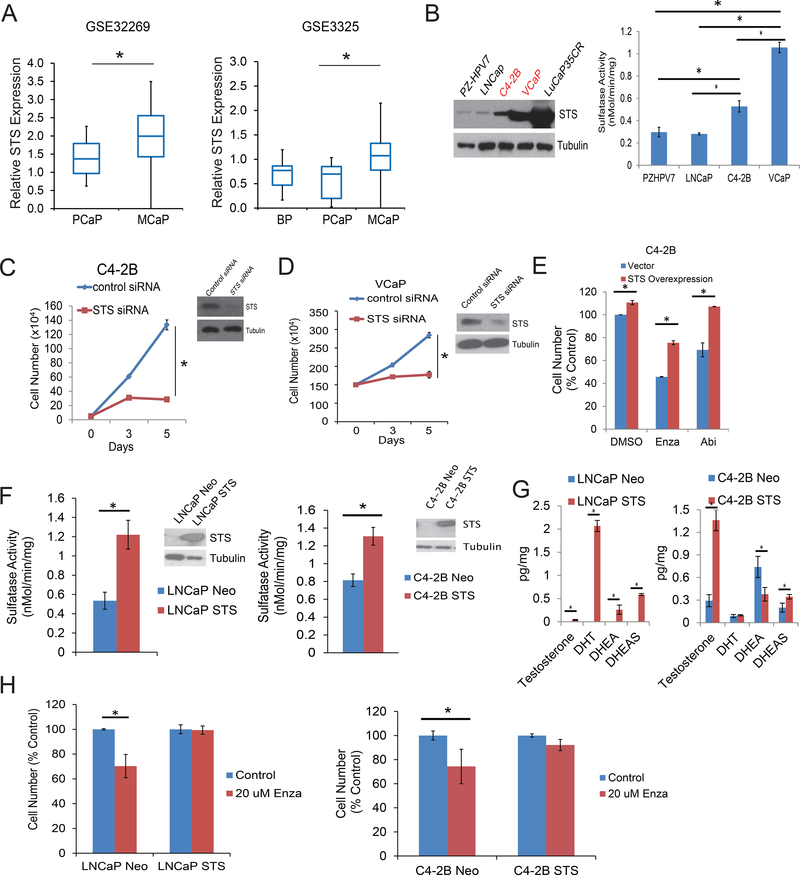Figure 1.
STS is highly expressed in CRPC tumors and regulates the AR pathway. A. STS gene expression analysis using the GEO database in two datasets comparing benign, primary or metastatic prostate cancer. GSE32269: primary prostate cancer, n = 22; and metastatic prostate cancer, n = 29. GSE3325: Benign, n = 4; primary prostate cancer, n = 5; and metastatic prostate cancer, n = 4; Data were extracted and analyzed by Subio platform. B. PZHPV7, LNCaP, C4–2B, VCaP, LuCaP 35CR xenograft tumors were harvested and whole cell lysates were subjected to Western blotting. Sulfatase activity was assessed. C. C4–2B cells were transiently transfected with control siRNA or STS siRNA and the cell numbers were determined on different days. Whole cell lysates were collected at 3 days and subjected to Western blotting. D. VCaP cells were transiently transfected with control siRNA or STS siRNA and cell numbers were determined on different days. Whole cell lysates were collected on day 3 day and subjected to Western blotting. E. C4–2B cells were transiently transfected with STS containing plasmids or vector control and then treated with DMSO, 20μM Enza, or 10 μM Abi for 3 days. Cell number was determined on day 3 day. F. STS activity was assessed using a STS Activity Kit in C4–2B and LNCaP cells stably overexpressing STS. Inset: Western blot of STS expression. G. Testosterone, DHT, DHEA, and DHEAS levels in C4–2B and LNCaP cells stably overexpressing STS treated with 100 nM DHEAS. H. C4–2B and LNCaP cells stably overexpressing STS were treated with DMSO or 20 μM Enza for 3 days and cell number was assessed. * p<0.05

